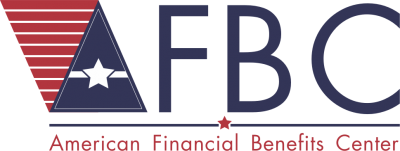American Financial Benefits Center on Proposals to Cap Federal Student Loan Lending

EMERYVILLE, Calif., April 23, 2018 (Newswire.com) - The reauthorization bill making its way through the House of Representatives, commonly known as PROSPER, proposes putting in place a cap on federal Direct PLUS loan lending. While that aims to directly address the problem of students ending up with more debt than they can handle, critics suggest it could have consequences. American Financial Benefits Center (AFBC), a document preparation company that helps its clients with federal repayment plan application and recertification paperwork, proposes that borrowers with high debt look into income-driven repayment plans that can cap their payments based on income and family size.
"Setting lending limits is one approach to trying to solve the growing student debt problem," said Sara Molina, manager at AFBC. "We understand that a lot of students take on a significant amount of debt, but they should know that they have access to existing federal repayment plans that may help."
We understand that a lot of students take on a significant amount of debt, but they should know that they have access to existing federal repayment plans that may help.
Sara Molina, Manager at AFBC
Direct PLUS loans are available for independent undergraduate students or graduate students. Such students can borrow up to the cost of education, including living expenses, minus other financial aid received. The proposed cap would limit the amount of PLUS loans students can receive, which could result in funding gaps for students who do not have the resources to fund their education themselves.
Limiting the available funds for graduate school may affect the outcome of common graduate school pathways, such as law school. Attendance may be limited to those who either have the money to pay out of pocket or are willing to take on private loans to cover the difference. Critics argue that capping loans would make law school more expensive, and would disproportionately affect low-income students and those of color.
Borrowers should know that high debt does not always equate to a difficult financial future. Federal income-driven repayment plans (IDRs) can reduce payments by calculating them as a percentage of discretionary income, which uses gross income and family size information. After 20 to 25 years of enrollment in an IDR, any remaining balance will be forgiven. Any reduction in student loan payment can be redirected to other financial needs or goals in a household.
"At AFBC, we help our clients with the necessary paperwork to apply to stay in IDRs that are helping them manage the debt they needed for college," said Molina. "For so many, the student loan system is so complicated and confusing that it might not be easy to fix, but we are happy to do our part to help our clients find success in repaying the loans that they have."
About American Financial Benefits Center
American Financial Benefits Center is a document preparation company that helps clients apply for federal student loan repayment plans that fit their personal financial and student loan situation. Through its strict customer service guidelines, the company strives for the highest levels of honesty and integrity.
Each AFBC telephone representative has received the Certified Student Loan Professional certification through the International Association of Professional Debt Arbitrators (IAPDA).
Contact
To learn more about American Financial Benefits Center, please contact:
American Financial Benefits Center
1900 Powell Street #600
Emeryville, CA 94608
1-800-488-1490
info@afbcenter.com
Source: American Financial Benefits Center
